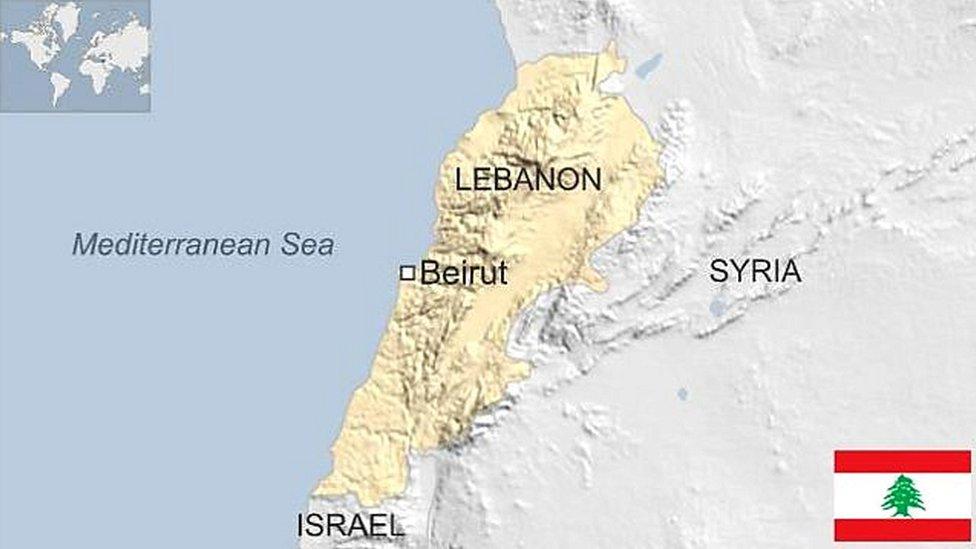US urges Lebanon stability amid escalating tensions
- Published
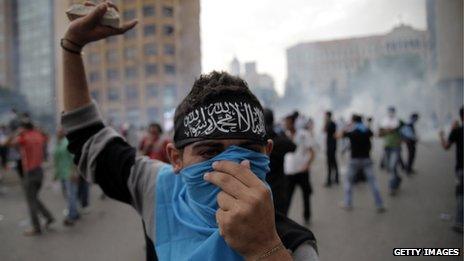
The US warned that a power vacuum would pose a great risk to Lebanon's political stability
The US has said it is backing Lebanese efforts to form a new coalition amid rising tension sparked by the killing of security chief Wissam al-Hassan.
US state department spokeswoman Victoria Nuland warned a power vacuum would pose a great risk to stability.
"The export of instability from Syria threatens the security of Lebanon now more than ever," she said.
Deadly clashes erupted in Beirut and Tripoli after opposition figures blamed Syria for the attack on Gen Hassan.
On Saturday, President Michel Suleiman rejected an offer of resignation from Prime Minister Najib Mikati, whose coalition government is dominated by the pro-Syrian Shia Islamist movement Hezbollah and its allies.
Mr Mikati said the president had asked him "to stay for a while longer" to "avoid a political vacuum".
However, the decision prompted Fouad Siniora, a prominent member of the Western-backed 14 March opposition alliance, to warn on Sunday: "The Lebanese people won't accept, after today, the continuation of the government of assassination."
Speaking in Washington on Tuesday evening, Ms Nuland told reporters: "This is obviously a Lebanese affair."
"And while we don't want a vacuum of a legitimate political authority, we do support this process that is now under way to produce a new government that's responsive to the needs of the Lebanese people."
She added that the US ambassador, Maura Connelly, was due to meet Lebanese politicians to discuss the possible shape of the new coalition.
'Designed to provoke'
Meanwhile, European Union foreign policy chief Catherine Ashton held talks in Beirut with President Suleiman and Prime Minister Mikati on Tuesday.
She also warned against the dangers of a political vacuum and welcomed efforts to "maintain stability through national dialogue".
"Such acts of terrorism are designed to provoke reaction and to create tensions," Ms Ashton said.
The Lebanese army is trusted and respected, and it is hoped its presence will calm people
"The importance of robust state institutions that continue to ensure security and provide services cannot be understated."
Gen Hassan, who headed the intelligence branch of the Internal Security Forces, was killed in a car bomb blast on Friday, along with one of his bodyguards and a woman nearby.
The senior official was a Sunni and an outspoken critic of Syrian President Bashar al-Assad.
He also maintained close links to the 14 March alliance and the family of its leader, former Prime Minister Saad Hariri.
Gen Hassan's murder has led to deadly clashes between pro- and anti-Syrian factions. As a result, the Lebanese army has been deployed on the streets of Beirut and Tripoli to try to stem the violence.
'Nation at stake'
Thousands attended Gen Hassan's funeral on Sunday, which became a political rally against both Mr Mikati and Syria.
Police scuffled with a group of protesters who attempted to storm the prime minister's office, and overnight into Monday protesters set up road blocks in Beirut, prompting exchanges of gunfire.
On Monday, dozens of people set up camp outside Mr Mikati's office, calling for his resignation.
Opposition MPs boycotted Tuesday's parliamentary sessions.
The army has urged "all political leaders to be cautious when expressing their stances and opinions" and in attempting to mobilise public action "because the fate of the nation is at stake".
The military is a widely respected institution in Lebanon that has often been required to stand between the country's diverse political and religious factions.
- Published24 October 2012
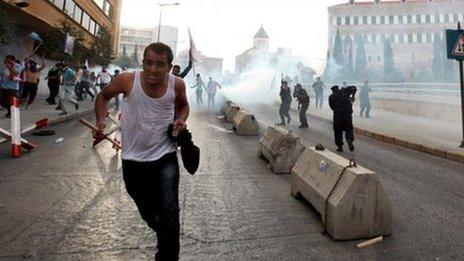
- Published20 October 2012
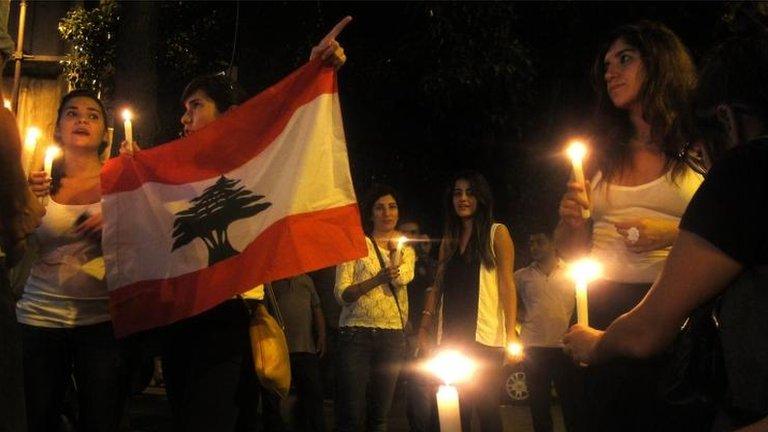
- Published19 October 2012
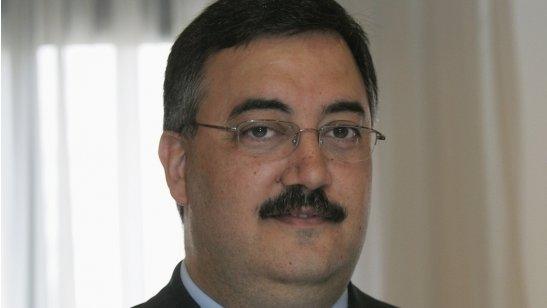
- Published22 September 2012
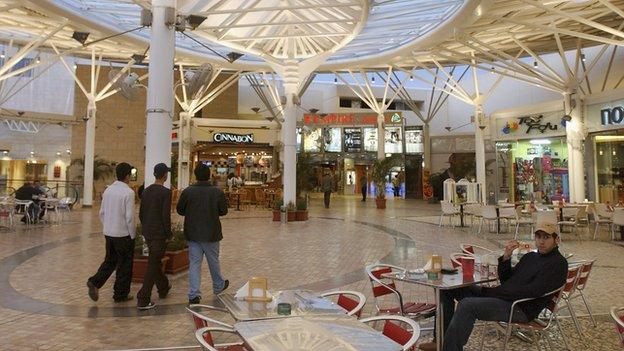
- Published20 October 2012
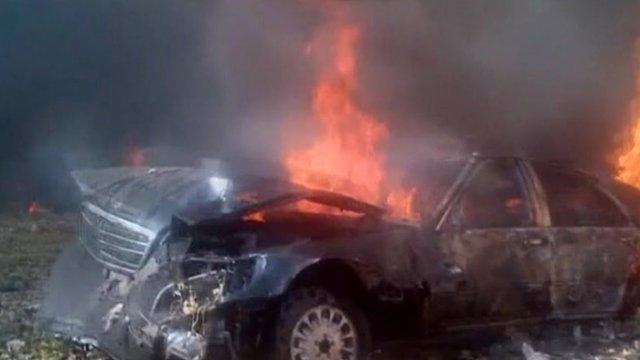
- Published10 January
